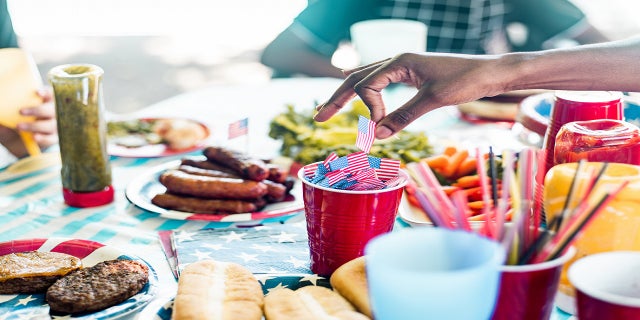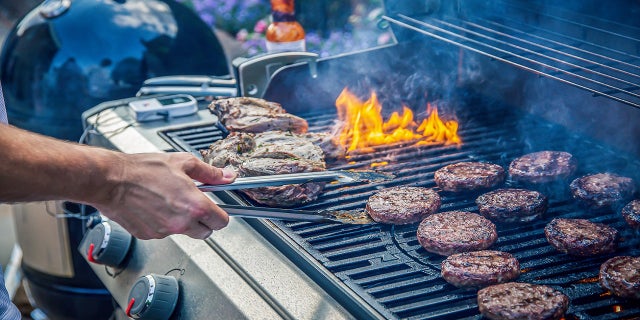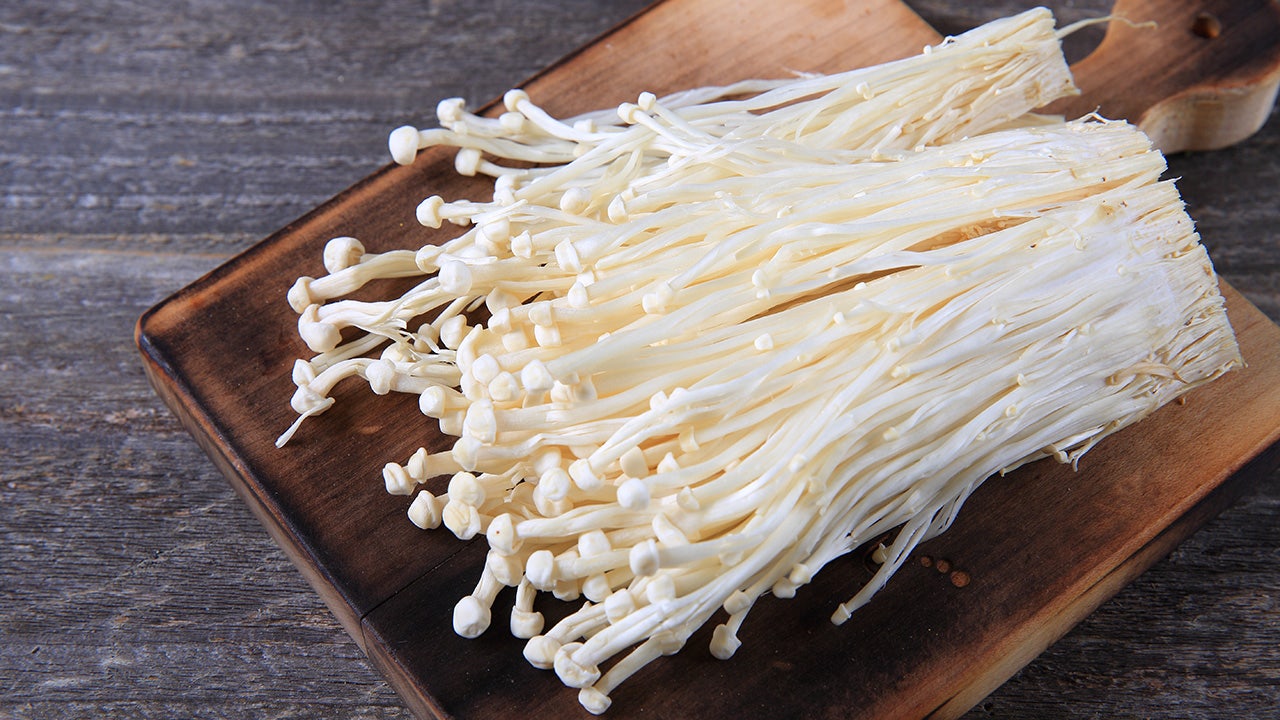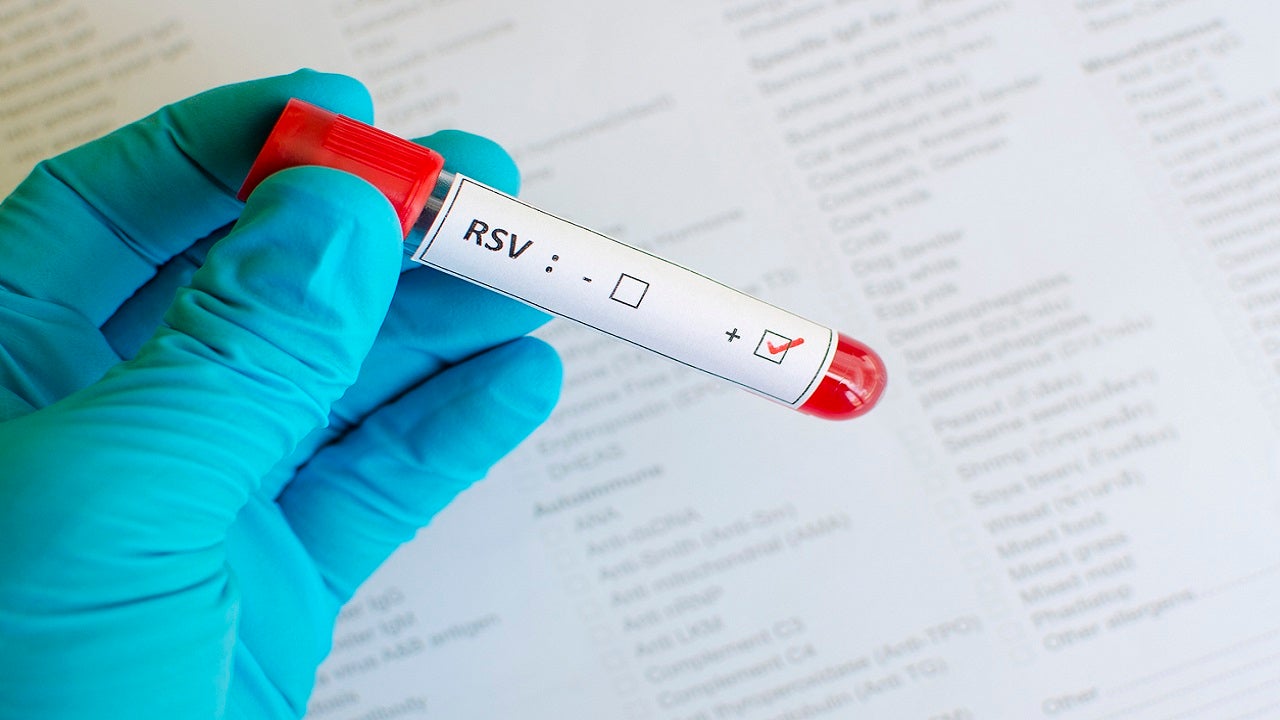With many Americans readying to fire up barbeques and host cookouts in celebration of Fourth of July, a federal agency overseeing food safety has released key tips to prevent infectious-disease this holiday.
According to the Department of Agriculture Food Safety and Inspection Service, foodborne illness can be prevented by practicing hand hygiene, using separate cutting boards to avoid cross contamination between meats and fresh produce (or sanitize one board) and cooking and storing foods at safe temperatures.
“If you’re grilling at your picnic, remember to cook raw meat and poultry to a safe minimum internal temperature: ground meats (like sausage and burgers) at 160 degrees Fahrenheit, whole cuts of meat (steaks) at 145 degrees Fahrenheit with a three-minute rest time, and poultry at 165 degrees Fahrenheit,” the food safety agency advises.
HOT DOGS: 5 LITTLE-KNOWN FACTS AHEAD OF JULY 4

Knowing the basics of food safety can help prevent food-related illnesses this July 4 holiday. (iStock)
BARBECUE CHICKEN DRUMSTICKS SMOTHERED IN CHIPOTLE-BEER BARBECUE SAUCE FOR JULY 4: RECIPE
Any leftovers should go into the fridge within 2 hours of cooking, but food exposed to hot temperatures (like in a car) should get refrigerated within 1 hour, per the Centers for Disease Control and Prevention (CDC), which advises four steps in dropping risk of food poisoning: clean, separate, cook and chill; which includes washing hands, rinsing produce, separating raw meat, poultry, seafood and eggs from other foods while shopping and storing, cooking food to eliminate harmful germs and refrigerating food promptly.
When handling chicken, be sure to use two sets of tongs, and make sure to grill the chicken on both sides, Jen Welper, wellness executive chef with Mayo Clinic Healthy Living Program, told Fox News. There’s no need to rinse raw chicken, she said, which can contribute to cross contamination if the sink isn’t properly sanitized. She also recommends using a food thermometer in the thickest part of the meat, and check that thermometers are calibrated, or aligned with room temperature. Make sure to sanitize the thermometer to avoid cross contamination, she said.
GRILLED CORN ON THE COB RECIPE WITH SPICY BUTTER ADDS A PERFECT KICK TO YOUR JULY 4 MEAL
Mayonnaise-based dishes like potato salad and pasta salad should be kept cold, Welper continued, and added that seafood is safe to eat for up to 2-3 days when stored in the fridge, with about seven days for cooked chicken when chilled and stored properly.

The CDC advises four steps in dropping risk of food poisoning: clean, separate, cook and chill. (iStock)
Planning to travel this holiday? Transport food safely by placing cold dishes in a cooler packed with ice or gel packs to keep food temperatures below 40 degrees Fahrenheit. Store hot dishes in insulation bags to keep food heated to 140 degrees Fahrenheit.
According to the CDC, food-related illness occurs after ingesting food contaminated with germs or toxic substances. Symptoms can include diarrhea, vomiting, upset stomach or nausea. While anyone can contract a food-related illness, more serious illness can occur in people aged 65 and older, kids under 5, those with weakened immune systems and expectant women.
The CDC recommends contacting a doctor upon severe symptoms like fever above 102 degrees Fahrenheit, persistent diarrhea not improving after three days, excessive vomiting and dehydration.
 Iktodaypk Latest international news, sport and comment
Iktodaypk Latest international news, sport and comment




